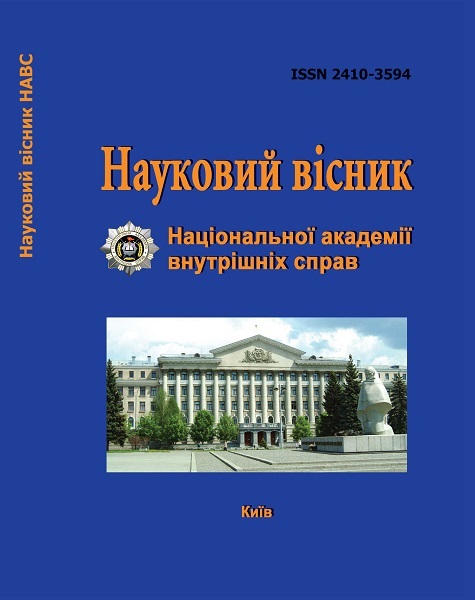The Principle of Complementarity as a Constitutional and Legal Basis for the Implementation of the Rome Statute of the International Criminal Court in National Legislation of Ukraine
Abstract
The article is devoted to the study of recognition by the states of the principle of complementarity as a «bodyline» for the ratification of the Rome Statute of the International Criminal Court at the constitutional level. The author analizes the existence of objective grounds for non-ratification of the Rome Statute by Ukraine, namely, the question of the compatibility of the principle of complementarity with the constitutional norm – the 124th Article of the Constitution of Ukraine. It was cleared up the consequences of the recognition by the participating States and non-participants of the Rome Statute of the principle of complementarity, which lie in the extension of the jurisdiction of the International Criminal Court, which in turn should be enshrined at the constitutional level. The concept of jurisdiction and admissibility within the competence of the International Criminal Court and their peculiarities that influence the principle of complementarity are researched. An analysis of Article 17th of the Rome Statute of the International Criminal Court as the basis for the extension of the jurisdiction of the International Criminal Court, in conjunction with the principle of complementarity and, as a result, its acceptance by the constituent States. It is concluded that recognizing the principle of complementarity is a problem that should be resolved at constitutional level by states intending to ratify the Rome Statute of the International Criminal Court by consolidating and recognizing the jurisdiction of the International Criminal Court in the Basic Laws.
Downloads
Abstract views: 709 PDF Downloads: 914
- Authors reserve the right to authorship of their own work and transfer to the magazine the right of the first publication of this work under the terms of the Creative Commons Attribution License, which allows other persons to freely distribute published work with mandatory reference to authors of the original work and the first publication of an article in this magazine.
- Authors have the right to enter into separate additional agreements on non-exclusive dissemination of the work in the form in which it was published in the journal (for example, to post an article in the institution's repository or to publish as part of a monograph), provided that the link to the first publication of the work in this journal is maintained.
- The journal's policy allows and encourages the posting of articles by authors on the Internet (for example, in electronic storehouses of institutions or on personal websites), both before the submission of this manuscript to the editorial office and during its editorial processing, as this contributes to the creation of a productive scientific discussion and positively affects the efficiency and dynamics of citing the published work.




